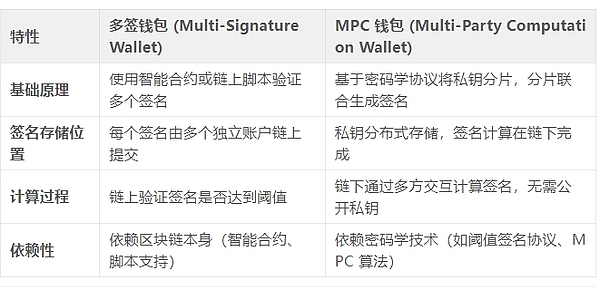
Source: Denglian Community
Although MPC (Multi-Party Computation, Multi-party Secure Computation) wallet and Multi-Signature Wallet (Multi-Signature Wallet) are both used to improve the security and control authority of private keys , but their working principles and application scenarios are significantly different.
1. Core difference2. Working principle< /p>
3. Security comparison4. Cost and performance comparison5. Usage scene comparison 6. Comparison of advantages and disadvantagesMulti-signature wallet
Advantages:
Clear logic and widely applicable to the current blockchain ecosystem.
Completely operated on the chain, with high transparency.
Disadvantages:
Depends on on-chain functions and has high execution costs.
Private keys need to be managed separately and are vulnerable to single point attacks.
MPC Wallet
Advantages:
High privacy and security, the private key never leaves the sharded storage.
It saves on-chain operation costs and is more suitable for large-scale applications.
Disadvantages:
High implementation complexity and reliance on advanced cryptography algorithms.
Specialized infrastructure is required to support multi-party computation.
SummaryMulti-signature wallet: more suitable for scenarios that require high transparency and complete on-chain operations, such as DAO or on-chain governance.
MPC Wallet: More suitable for applications that pursue privacy and security and optimize off-chain costs, such as enterprise-level asset management or high-security personal wallets.
Choosing the right solution based on your needs is the key!












